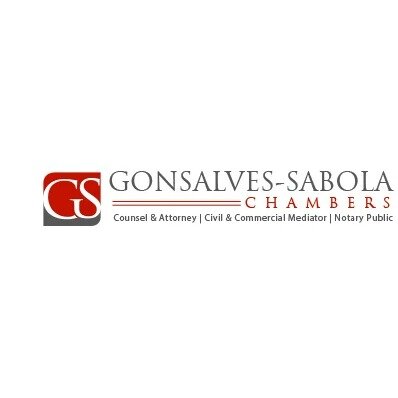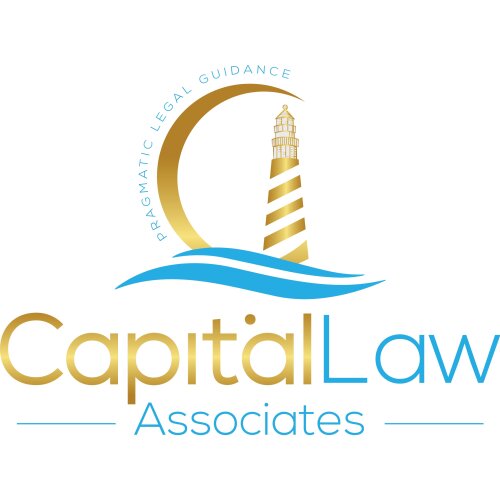Best Corporate Governance Lawyers in Nassau
Share your needs with us, get contacted by law firms.
Free. Takes 2 min.
List of the best lawyers in Nassau, Bahamas
About Corporate Governance Law in Nassau, Bahamas
Corporate governance refers to the system of rules, practices, and processes by which companies are directed and controlled. In Nassau, Bahamas, the corporate governance framework is influenced by both domestic legislation and internationally recognized standards due to the country’s significant role as a global financial center. The aim is to ensure transparency, integrity, accountability, and fairness in the management of Bahamian companies, including both local and international business companies (IBCs). Strong corporate governance is critical for building investor confidence, promoting ethical conduct, and ensuring compliance with the law.
Why You May Need a Lawyer
Seeking assistance from a lawyer specializing in corporate governance law in Nassau, Bahamas can be essential in numerous scenarios, such as:
- Incorporating a new business and establishing effective governance structures
- Ensuring board members and executives comply with legal duties and responsibilities
- Navigating complex shareholder agreements or disputes
- Adhering to anti-money laundering (AML) and know your customer (KYC) regulations
- Managing or preventing conflicts of interest
- Responding to regulatory investigations or enforcement actions
- Implementing best practices for risk management and corporate transparency
- Advising on mergers, acquisitions, or corporate restructuring
Legal professionals can help interpret local laws, draft essential documents, represent clients in disputes, and provide guidance to strengthen corporate governance frameworks.
Local Laws Overview
Corporate governance in Nassau, Bahamas is primarily governed by several statutes and regulations, including:
- Companies Act, 1992 and International Business Companies Act, 2000 - Define the creation, structure, and regulatory obligations of various company types in the Bahamas.
- Securities Industries Act, 2011 - Imposes specific governance standards for publicly listed and regulated companies, overseen by the Securities Commission of The Bahamas.
- Financial Transactions Reporting Act - Requires companies to follow strict AML and KYC procedures, which are integral to robust governance.
- The Central Bank of The Bahamas Guidelines - Especially relevant for financial institutions, these outline governance expectations and compliance obligations.
Key aspects relevant to corporate governance include the roles and duties of directors, required standards of transparency and disclosure, management of shareholder rights, board composition and independence, and obligations related to risk management and compliance. Violations of these laws can lead to regulatory action, fines, or even criminal charges, underscoring the importance of prioritizing sound corporate governance.
Frequently Asked Questions
What is corporate governance, and why is it important in the Bahamas?
Corporate governance refers to the systems and processes used to direct and manage a company. It is crucial in Nassau, Bahamas to ensure transparency, accountability, compliance with the law, and maintain investor trust, especially given the Bahamas’ role as an international business hub.
Who regulates corporate governance standards in Nassau, Bahamas?
The Companies Registry, the Securities Commission of The Bahamas, and the Central Bank of The Bahamas are among the primary regulators overseeing company registration, compliance, and financial sector governance.
Do all companies in Nassau need to follow the same governance requirements?
No. Governance requirements can differ depending on whether a company is local, international, or publicly traded, as well as its specific sector. Financial institutions are subject to additional rules and oversight.
What are the responsibilities of company directors under Bahamian law?
Directors must act honestly and in good faith, exercise reasonable care and diligence, avoid conflicts of interest, and ensure that the company complies with all applicable laws and regulations.
Are there specific requirements for board composition in Bahamian companies?
Bahamian law specifies minimum numbers of directors for certain company types, but many requirements depend on the company’s nature and sector. Financial and publicly-listed companies often face stricter guidelines, including rules on independent directors.
What are the legal consequences of poor corporate governance in Nassau?
Consequences can include regulatory sanctions, civil penalties, director disqualification, criminal charges in serious cases, and reputational damage that can affect business operations.
How can shareholders protect their rights under Bahamian corporate law?
Shareholders have rights to information, voting, calling meetings, and challenging decisions. Legal remedies exist for breaches of these rights, including the ability to seek court intervention.
What should companies do to comply with anti-money laundering (AML) standards?
Companies should establish clear policies, conduct due diligence, monitor transactions, and report suspicious activity as required by Bahamian AML laws. Non-compliance can lead to severe penalties.
Is it mandatory to have a company secretary in Nassau, Bahamas?
Most Bahamian companies are required to appoint a company secretary who oversees statutory compliance, maintains records, and assists with governance practices.
How can a corporate governance lawyer assist my business?
A lawyer can help establish proper governance structures, draft and review documents, advise on regulatory compliance, assist during disputes, and provide ongoing support to mitigate legal risks.
Additional Resources
For more information on corporate governance in Nassau, Bahamas, the following resources are helpful:
- Securities Commission of The Bahamas
- The Bahamas Financial Services Board (BFSB)
- Office of the Attorney General and Ministry of Legal Affairs
- Bahamas Chamber of Commerce and Employers’ Confederation
- Central Bank of The Bahamas (especially for financial institutions)
- Companies Registry, Registrar General’s Department
These organizations provide guidance, regulatory updates, educational materials, and can direct individuals or companies to qualified professionals.
Next Steps
If you believe you need assistance with corporate governance issues in Nassau, Bahamas, consider the following steps:
- Assess your specific legal needs and concerns related to corporate governance.
- Gather all relevant documentation, such as company bylaws, board minutes, shareholder agreements, and compliance policies.
- Research and shortlist lawyers or law firms in Nassau specializing in corporate or business law.
- Schedule a consultation to discuss your situation and receive tailored legal advice.
- Stay informed about ongoing changes in legislation and best practices by consulting local regulatory bodies and professional organizations.
Taking a proactive approach to corporate governance can not only prevent legal setbacks but also foster a stronger, more resilient business in the Bahamas.
Lawzana helps you find the best lawyers and law firms in Nassau through a curated and pre-screened list of qualified legal professionals. Our platform offers rankings and detailed profiles of attorneys and law firms, allowing you to compare based on practice areas, including Corporate Governance, experience, and client feedback.
Each profile includes a description of the firm's areas of practice, client reviews, team members and partners, year of establishment, spoken languages, office locations, contact information, social media presence, and any published articles or resources. Most firms on our platform speak English and are experienced in both local and international legal matters.
Get a quote from top-rated law firms in Nassau, Bahamas — quickly, securely, and without unnecessary hassle.
Disclaimer:
The information provided on this page is for general informational purposes only and does not constitute legal advice. While we strive to ensure the accuracy and relevance of the content, legal information may change over time, and interpretations of the law can vary. You should always consult with a qualified legal professional for advice specific to your situation.
We disclaim all liability for actions taken or not taken based on the content of this page. If you believe any information is incorrect or outdated, please contact us, and we will review and update it where appropriate.

















